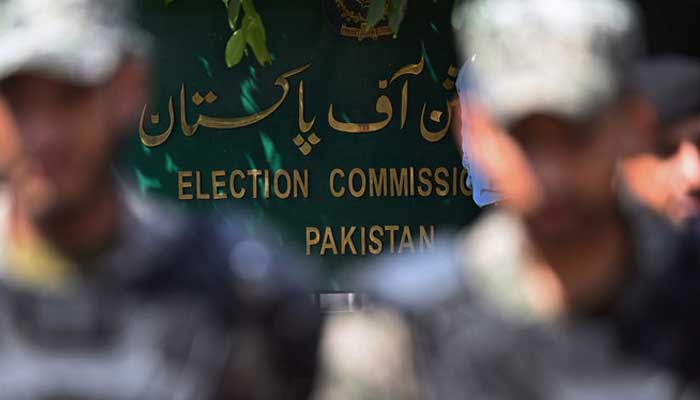Polls in Punjab: ECP to seek SC’s advice if institutions don’t provide support
ISLAMABAD: Although the Election Commission of Pakistan (ECP) has released the schedule of general elections for Punjab Assembly in line with the directions of the Supreme Court yet it is not sure how they will take place without the support of the apex court at a time when the federal government is reluctant to cooperate.
Meanwhile, the ECP’s consultation with the Governor of Khyber Pakhtunkhwa, which was also done on the orders of the court, has turned out to be a futile exercise as the KP governor was more focused on the enabling environment with particular reference of the security situation than discussing the date for elections of the provincial assembly, an official source told The News.
The ECP team told him that security issues could be discussed with the interim administration of the province and his mandate was limited to deciding the date but this argument didn’t impress him. Instead, he has sought a meeting with the chief election commissioner on the matter despite the fact the ECP team was fully empowered by the CEC.
As far as Punjab is concerned, the ECP has decided to appoint returning officers from bureaucracy after a categorical denial from the Lahore High Court to spare district judiciary for the purpose. But two other issues still pose a serious challenge. One of them is the funding for holding elections and another is the deployment of military and paramilitary forces at polling stations.
The ECP will hold a meeting today (Wednesday) with the top officials of finance, interior and defence ministries. The ECP had demanded Rs20 billion for the purpose of holding provincial assemblies elections in Punjab and KP which the federal government is reluctant to release under the pretext that it was already running short of cash. This is another story that the government has issued more than Rs100 billion for the development schemes to be carried out in the constituencies of treasury members.
Similarly, the Pakistan Army has already regretted the demand of troops. Going by the estimate of 2018 elections, the ECP needs around three lac soldiers for deployment on election duties and it can’t hold elections in the absence of this support. An ECP official, while talking to The News, said he was not very optimistic of positive response as fresh efforts were to be made.
What is the plan B of the ECP? It will invoke Article 218 and 220 of the Constitution to ensure the provision of requisite support. The Article 218(3) reads: “It shall be the duty of the Election Commission to organize and conduct the election and to make such arrangements as are necessary to ensure that the election is conducted honestly, justly, fairly and in accordance with law, and that corrupt practices are guarded against.”
And Article 220 empowers the ECP to call in the federal and provincial government to help. “It shall be the duty of all executive authorities in the Federation and in the provinces to assist the commissioner and the Election Commission in the discharge of his or their functions,” reads the article.
Now the question arises what the ECP will do if it fails to enlist support it needed as various departments could come up with excuses plausible enough to refuse any help. Answering this question, the concerned official said the ECP will then move the apex court to ensure the provision of funds and troops. “After all, we are conducting elections on the direction of the court. It is now up to the court how it will devise a practical mechanism for holding this election,” he said.
-
 Prince Harry And Meghan Unlikely To Meet Royals In Jordan
Prince Harry And Meghan Unlikely To Meet Royals In Jordan -
 Hero Fiennes Tiffin Shares Life-changing Advice He Received From Henry Cavill
Hero Fiennes Tiffin Shares Life-changing Advice He Received From Henry Cavill -
 Savannah Guthrie's Fans Receive Disappointing News
Savannah Guthrie's Fans Receive Disappointing News -
 Prince William Steps Out For First Solo Outing After Andrew's Arrest
Prince William Steps Out For First Solo Outing After Andrew's Arrest -
 Jake Paul Chooses Silence As Van Damme Once Again Challenges Him To Fight
Jake Paul Chooses Silence As Van Damme Once Again Challenges Him To Fight -
 Google Disrupts Chinese-linked Hacking Groups Behind Global Cyber Attacks
Google Disrupts Chinese-linked Hacking Groups Behind Global Cyber Attacks -
 Four People Killed In Stabbing Rampage At Washington Home
Four People Killed In Stabbing Rampage At Washington Home -
 Meghan Pushes Prince Harry Into Territory That’s Dangerous To His Brand: ‘She Isn’t Hearing A Word Of It’
Meghan Pushes Prince Harry Into Territory That’s Dangerous To His Brand: ‘She Isn’t Hearing A Word Of It’ -
 Christina Applegate Reflects On Lasting Impact Of Being Molested In Childhood
Christina Applegate Reflects On Lasting Impact Of Being Molested In Childhood -
 Martin Short Makes Big Decision Following Tragic Death Of Daughter
Martin Short Makes Big Decision Following Tragic Death Of Daughter -
 Antarctica’s Mysterious ‘gravity Hole’: What’s Behind The Evolution Of Earth’s Deep Interior?
Antarctica’s Mysterious ‘gravity Hole’: What’s Behind The Evolution Of Earth’s Deep Interior? -
 Hilary Duff Addresses Ashley Tisdale's 'toxic Mom Group' Claims And Matthew Koma's Firey Response
Hilary Duff Addresses Ashley Tisdale's 'toxic Mom Group' Claims And Matthew Koma's Firey Response -
 Jack Hughes's Proximity To Trump Angers Tate McRae Fans
Jack Hughes's Proximity To Trump Angers Tate McRae Fans -
 Neve Campbell Opens Up About Her 'difficult Decision' To Not Sign 'Scream 6'
Neve Campbell Opens Up About Her 'difficult Decision' To Not Sign 'Scream 6' -
 Nobel-winning Scientist Resigns From Columbia University After Epstein Links Revealed
Nobel-winning Scientist Resigns From Columbia University After Epstein Links Revealed -
 Prince William Remarks At BAFTAs 'indicative' Of King Charles Physical, Mental Health Too
Prince William Remarks At BAFTAs 'indicative' Of King Charles Physical, Mental Health Too




